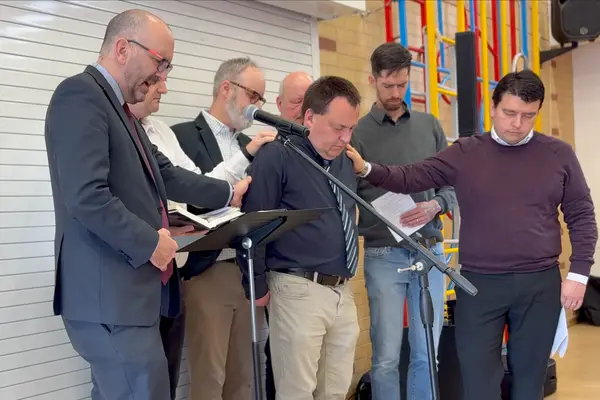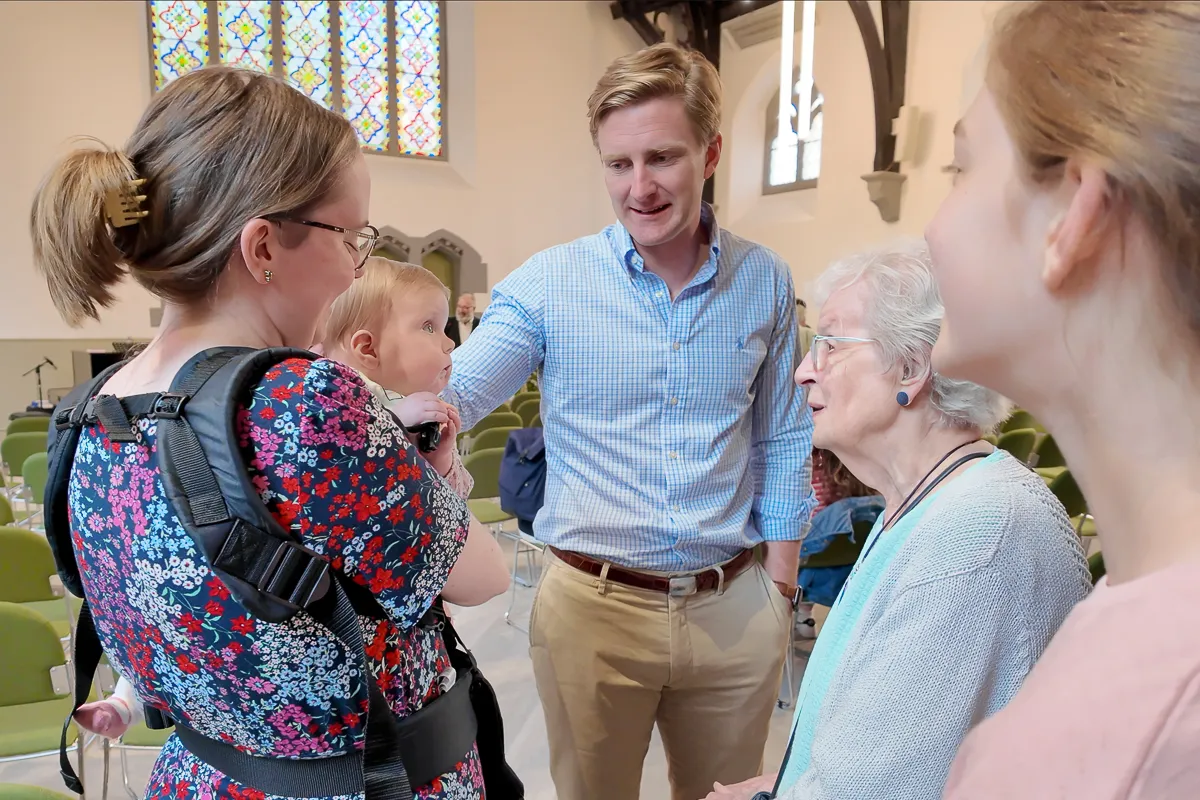Hospitality in a post-Christian society

I walked the streets of an unfamiliar city in a foreign country to have lunch with a man and his family whom I had met only minutes before. My actions violate every safety tip Americans are given when traveling abroad. A stranger had approached me, asked me a few questions about myself, and then invited me over to his house for lunch. What could go wrong?
Of course, the context is important. The stranger in this story was John, a kind elder who befriended me after a recent morning worship service at the International Presbyterian Church in Ealing, a borough in West London. He approached me during my visit to make me feel welcome. Discovering that I was visiting the city, he invited my wife and me to join his family for lunch.
As I learned more about IPC Ealing, I discovered that this intentional hospitality is part of the church’s DNA. Since his arrival as pastor, Paul Levy has emphasized the importance of hospitality for evangelism. In a metropolis like London, Levy reminds Christians that evangelism often begins with questions like, “Would you like to come for dinner?”
This hospitality is more than inviting visiting Americans to join families for a delicious meal of sausage and chips. Though the preaching at the morning worship service was conducted in English, a real-time translation was projected onto the wall in Farsi. The bulletin contained a QR code where worshippers could access translations of the worship service in other languages too.
Leadership at IPC Ealing makes every effort to remove barriers so that those whose native language is not English can fully participate in the life of the church. The Persians and Japanese have their own meetings after church to study the Bible and pray together. Over the past few years, these efforts have resulted in at least 20 Iranian and Japanese adults confessing faith in Christ, being baptized, and joining the church.
From my conversations with leaders at the church I learned that the discipleship process begins with hospitality. Removed from majority-Muslim contexts, individuals from a Muslim background are often more open to conversations about Christianity. Hospitality creates spaces where people can have those conversations and ask their questions, but it can still take years before someone is ready to be baptized.
IPC Ealing is part of the denomination by the same name, the International Presbyterian Church. It originated through Francis Schaeffer’s ministry at L’abri, known for using hospitality as a means of discipleship. Schaeffer’s son-in-law, Ranald Macaulay, started the Ealing church in 1969. Today, IPC ministers include Paul Levy, David Gibson, Sinclair Ferguson, Jonty Rhodes, Gray Sutanto, and more.
The PCA is connected to the IPC denomination through a number of formal and informal collaborations. One way is the UK Partnership, through which a number of PCA congregations financially support IPC church multiplication throughout the UK. Mission to the World also collaborates with the IPC to disciple the nations in various ways.
I know I’m not the first new face John has invited over for a meal. He told me he recently invited an Iranian man who speaks no English. They enjoyed conversation together using Google Translate. John and his wife regularly open their home with the hope that it opens their lives and their faith to others.
As an American Presbyterian, this experience reminded me that hospitality is radical in today’s world. Though we are more connected than ever before, we connect by staring at our phones rather than sharing meals at tables. We are not accustomed to inviting new acquaintances into our homes, especially without planning. It feels out of place. But of course, to be a Christian in a post-Christian community like West London is to feel out of place all the time.
Jesus had a habit of comparing the kingdom of God to meals. If we want people to join the feast of God’s kingdom, it requires an invitation. We can learn from our brothers and sisters who are serving in places like West London where following Christ and attending church are out of step with the culture. Sharing a meal is a practical way to imitate our Savior and initiate life-changing conversations.
This story originally appeared in byFaith magazine and is republished with permission.






